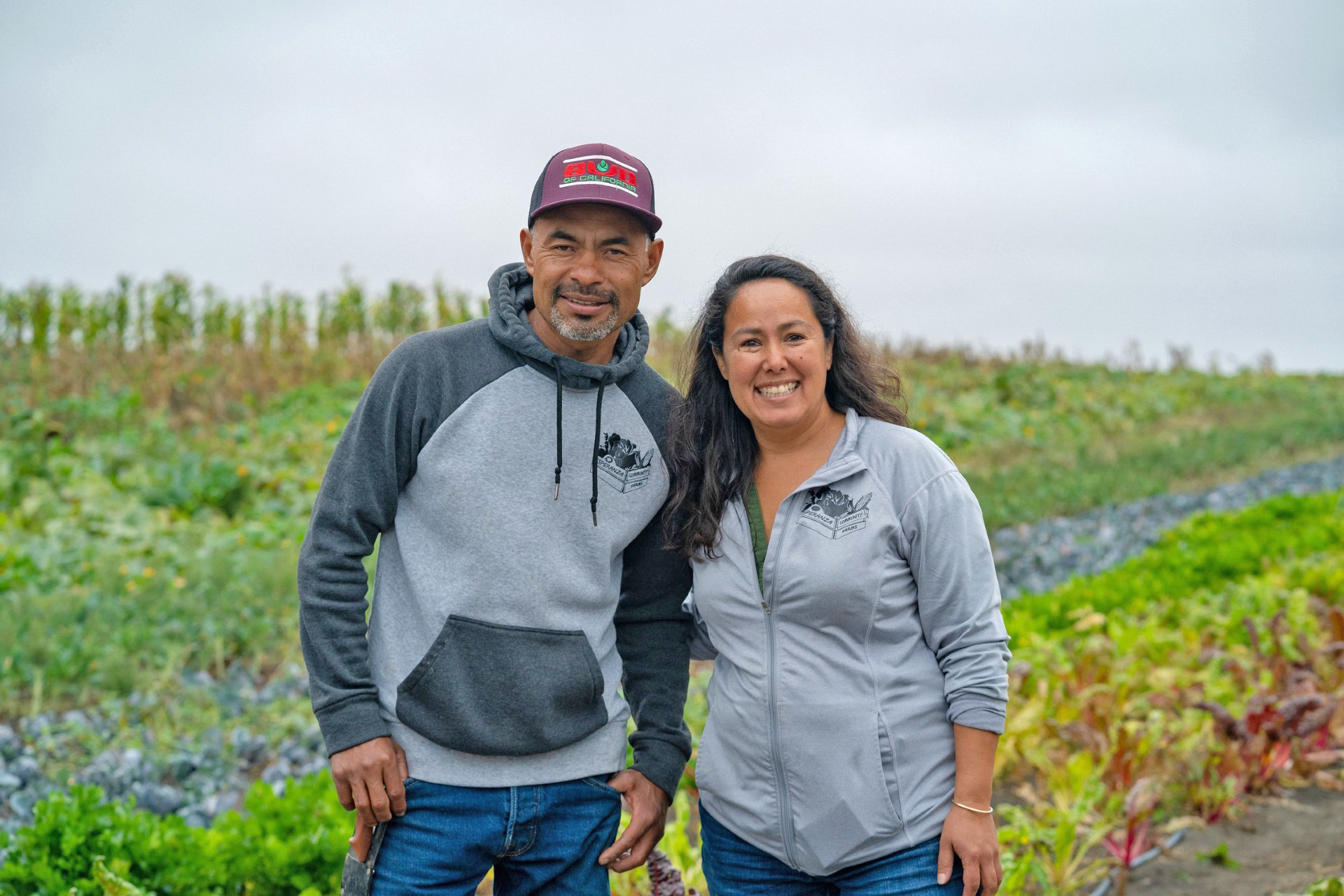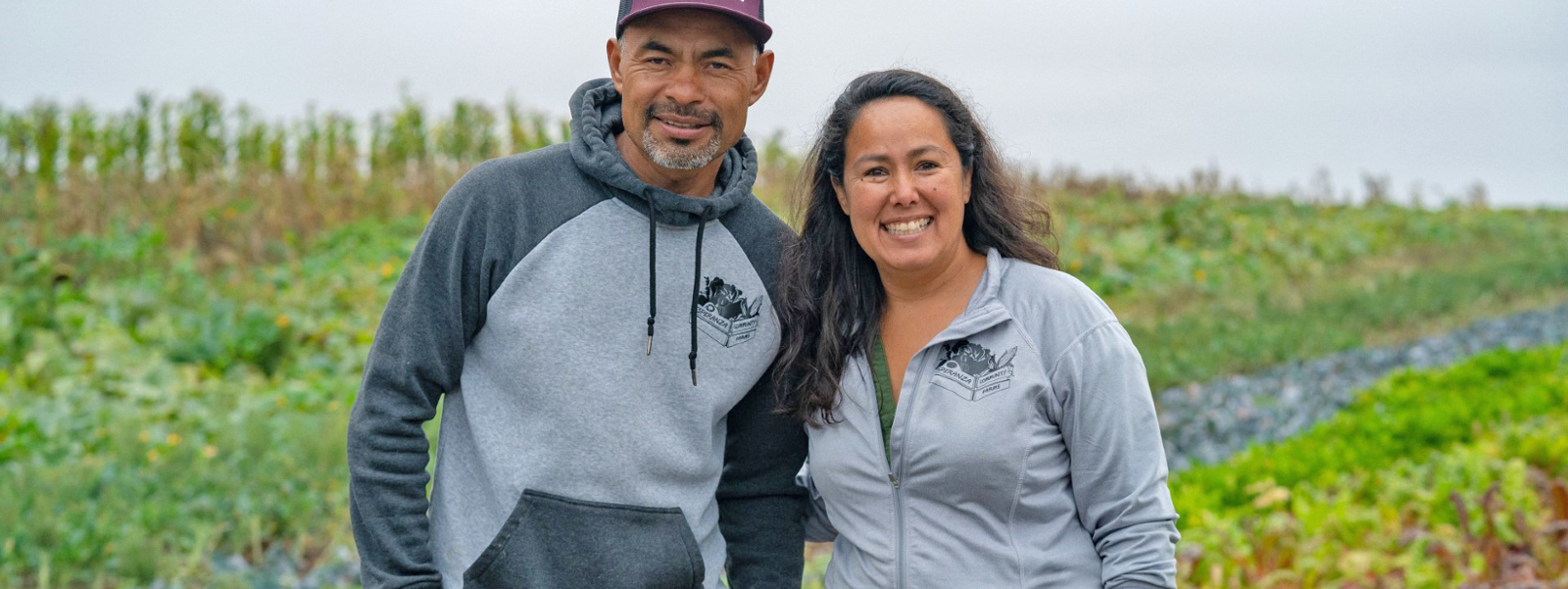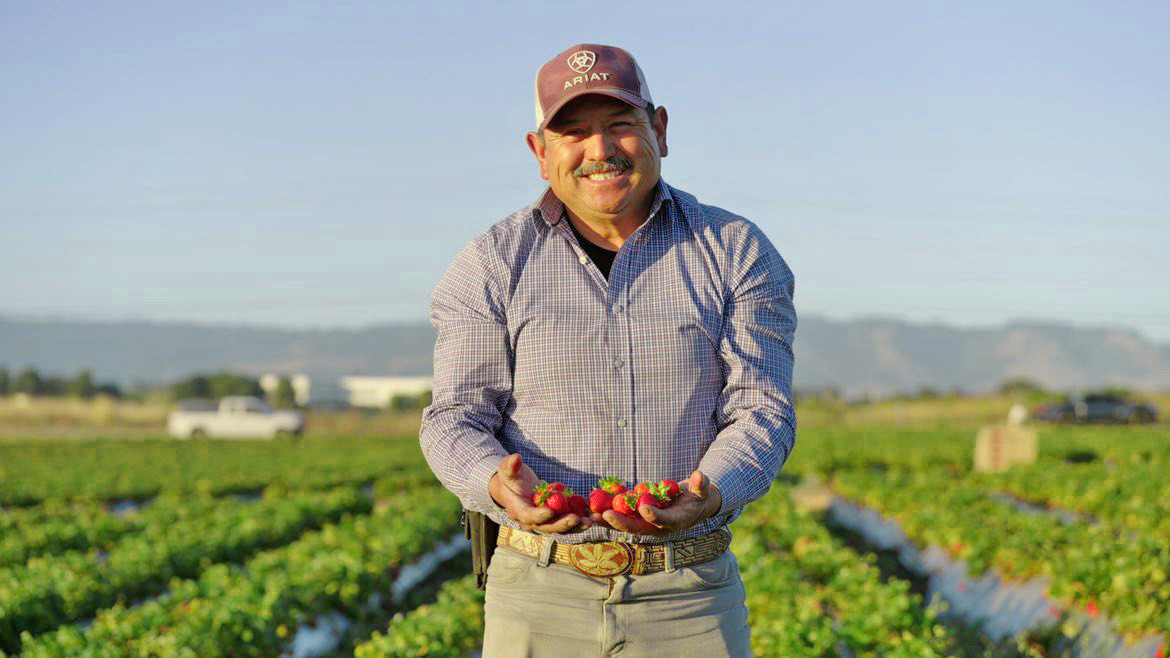Coastal agricultural project gives new farmers a boost

Guillermo Lazaro, left, and Mireya Gomez-Contreras stand near a field of produce grown as part of the Santa Cruz County-based Esperanza Community Farms, where they serve as co-leaders. The nonprofit operates the sustainable community agriculture project that leases land to new and beginning organic farmers.
Photo/Courtesy Esperanza Community Farms


Photo/Courtesy Salazar Organic Farms
By Bob Johnson
Along California’s Central Coast in Santa Cruz County, organic vegetables thrive near restored habitat at a site known as Watsonville Slough Farm, located in one of the state’s largest coastal wetlands.
To prevent the land from development, the Land Trust of Santa Cruz County in 2009 purchased the property and set out to protect and restore the coastal wetland ecosystem, demonstrate sustainable agricultural practices and provide opportunities for research, public access and education.
This work continues today through the nonprofit Esperanza Community Farms, a sustainable community agriculture project that leases land to new and beginning organic farmers at a significantly reduced cost. The project seeks to help local families facing food insecurity by growing and supplying organic produce that is distributed through a subsidized community supported agriculture, or CSA, program.
Organic farmers Guillermo Lazaro and Alejandro Salazar, who are co-leaders of the project, described their early experiences in agriculture.
Before farming at the Watsonville site, Lazaro spent 12 years working as a farm laborer and became interested in starting his own farm. He participated in a one-year course on organic farming practices at the Salinas-based Agriculture and Land-Based Training Association.
In 2018, he entered a four-year program and received a certified organic accreditation from the U.S. Department of Agriculture. Today, he owns ALD & Y Organic and farms about 11 acres of organic vegetables and other produce.
“Esperanza provides local, organic produce to a community that could not afford it,” Lazaro said. “That fulfills me as a farmer.”
After several years spent working at Watsonville-based Lakeside Organic Gardens, the largest organic grower in Santa Cruz County, Salazar got his break into California agriculture. He started his own 3-acre farm of organic vegetables and strawberries.
Through the Land Trust of Santa Cruz County, Salazar and other small and beginning farmers received significantly reduced costs to lease ground at the Watsonville Slough Farm site. He also received support from Kitchen Table Advisors, an agency that helps beginning farmers learn the business of farming.
Salazar has grown Salazar Organic Farms—the largest of nine organic farms operating at the Watsonville Slough Farm—to 27 acres of certified-organic produce, including lettuces, broccoli, cabbage, chard, bok choy, fennel, cherry tomatoes, peas, green beans and strawberries.
“We make a crop plan based on what the coolers say they will buy from us,” Salazar said, referring to companies that pack and ship fresh produce. “We are working on selling direct to consumers rather than the coolers.”
Salazar employs four, year-round employees and during harvest sources additional workers through farm-labor contractors.
“We’re moving toward working with smaller, new farmers,” said Steve Pedersen, working lands coordinator for the Land Trust of Santa Cruz County. “Once there were two dairies on this property, then apple orchards, then Earthbound Farms salad mixes.”
Small and beginning farmers, Pedersen said, face many challenges. They include finding land to farm, lack of capital to purchase equipment and supplies, and access to technical assistance for managing pests and diseases, irrigation and nutrient management.
Esperanza Community Farms started its CSA in 2017 with 17 members. The CSA grew to 30 members in 2018. By 2020, it had served more than 100 families.
Esperanza Community Farms works to connect with local schools. In August 2021, the farming project created the student-led Farm 2 Cafeteria program to bring local, organic produce to schools in the form of salads. The program also invites students on field trips to Esperanza Community Farms.
“Agriculture can be a channel to connect with the community,” said Alma Leonor-Sanchez, coordinator of the Farm 2 Cafeteria program.
Last fall, the program received a grant of almost $100,000 from USDA to purchase local produce for salads that are served in the lunch program at Pajaro Valley High School and New School Community Day High School in Watsonville.
“We are working with schools and local governments, so they are buying from small, local, organic farmers,” said Mireya Gomez-Contreras, the farm’s administrative co-leader. “We are working to get multigenerational, monolingual farmworker families to shop differently.”
The Land Trust of Santa Cruz County said it is securing $17 million in public and private funding to establish the Community Harvest public access area at the Watsonville Slough Farm.
The project will provide “U-pick” fruit orchards and vegetable plots at no cost to visitors, picnic areas, trails and a platform to view wildlife. The land trust said the access area will lead to educational opportunities for students.
(Bob Johnson is a reporter in Monterey County. He may be contacted at bjohn11135@gmail.com.)




